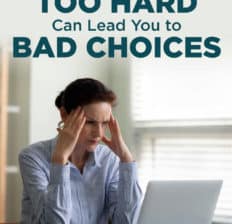This Dr. Axe content is medically reviewed or fact checked to ensure factually accurate information.
With strict editorial sourcing guidelines, we only link to academic research institutions, reputable media sites and, when research is available, medically peer-reviewed studies. Note that the numbers in parentheses (1, 2, etc.) are clickable links to these studies.
The information in our articles is NOT intended to replace a one-on-one relationship with a qualified health care professional and is not intended as medical advice.
This article is based on scientific evidence, written by experts and fact checked by our trained editorial staff. Note that the numbers in parentheses (1, 2, etc.) are clickable links to medically peer-reviewed studies.
Our team includes licensed nutritionists and dietitians, certified health education specialists, as well as certified strength and conditioning specialists, personal trainers and corrective exercise specialists. Our team aims to be not only thorough with its research, but also objective and unbiased.
The information in our articles is NOT intended to replace a one-on-one relationship with a qualified health care professional and is not intended as medical advice.
Study: A Day of Hard Thinking Can Lead to Bad Choices
October 4, 2022

Have you ever noticed a feeling a brain fog and fatigue after a day of thinking hard? Perhaps after a difficult day at work or long test, your brain just feels … tired.
A new study suggests that your body may be pushing you to make poor choices after a long day. It’s not that you’re being lazy or trying to punish yourself, but natural biological regulations are working to combat cognitive fatigue by favoring easy, short-term decision making.
Study Findings: Thinking Hard Can Lead to Bad Choices
A study published in August 2022 in Current Biology explored cognitive fatigue with magnetic resonance spectroscopy during a workday. This tool measures electromagnetic signals within metabolites of the brain.
For the study, two groups of participants performed either high-demand or low-demand cognitive control tasks and economic decisions. Data showed that choice-related fatigue markers were only present in the high-demand group, and those participants were more likely to prefer short-delay and little-effort options during decision making.
Researchers found that the hard thinking group displayed increased glutamate levels in the cognitive control region of the brain compared to the low-demand thinkers. Glutamate is a neurotransmitter (or chemical messenger) in the brain that has “excitatory effects,” meaning that it can actually excite cells to their death, according to prior research.
Study data also shows that this glutamate increase triggers a natural regulation mechanism in the cognitive region of the brain, which reduces a person’s control over decision making.
What It Means
This study indicates that after a day of hard thinking, you may experience a reduced ability to make decisions, and your brain will prefer little-effort options.
Because there’s a natural increase of glutamate levels in the brain after a day of intense thinking, it becomes more difficult to use the prefrontal cortex, the region of the brain that controls our thoughts and decision making.
We can learn from the study that it’s normal to feel brain fatigue after a day of hard thinking, and although we may not be aware of how tired our brains are, we should consider our abilities to make good decisions in these moments.
Tips to Support Cognition
Clearly, your brain is impacted by hard thinking and needs nourishment and rest to function optimally. Here are some tips to support cognition that you can practice every day:
- Eat nutrient-rich brain foods. Your diet has a tremendous impact on the health of your brain, so opt for foods that are rich in nutrients, including antioxidants, healthy fats, vitamins and minerals. Some of the best brain foods include avocado, berries, cruciferous vegetables, leafy greens, walnuts, coconut oil, bone broth and dark chocolate.
- Try nootropics. Nootropics are supplements that help cognitive function and support concentration. Some of the most popular nootropics include ginseng, ginkgo biloba, medicinal mushrooms, omega-3 fish oil, ashwagandha and vitamin B12.
- Get enough rest. It’s clear from this study that the brain needs time to rest. For starters, make sure you get enough sleep every night — at least seven hours is needed. It’s also important to take breaks throughout the day to reset and recover. This can include taking a leisurely walk outdoors, chatting with a loved one or sitting quietly over a cup of tea.
- Reduce stress. Stress increases cortisol levels, which impacts cognitive function, energy, sleep and more. When stress is chronic, or occurs daily, it can have a detrimental effect on your ability to think and make good decisions. Some effective ways to reduce stress include spending time outdoors, practicing meditation or quiet time, doing gentle exercise, and spending time with loved ones or pets.
- Move your body. Daily movement increases energy and cognition, improves sleep, and helps balance your hormones. Opt for at least 30 minutes of exercise every day. This can include walking, jogging, biking, swimming, dancing, lifting weights, yoga, pilates and more.
Conclusion
- A study published in Current Biology indicates that after high-demand thinking the brain will experience fatigue, resulting in a preference for short-delay and little-effort options during decision making.
- Hard thinking increases neurotransmitters that excite brain cells, triggering a natural regulation system in the brain that can cause cognitive fatigue. As a result, people have a hard time making difficult decisions, sometimes without even noticing the difficulty.
- To avoid this brain fatigue, make sure you get enough rest and support your brain health with nutritious foods, proper sleep and exercise.



